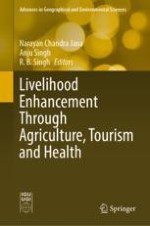2022 | OriginalPaper | Chapter
15. Urban Rejuvenation and Social Sustainability in Smart City: An Empirical Study of Community Aspirations
Authors : Virendra Nagarale, Piyush Telang
Published in: Livelihood Enhancement Through Agriculture, Tourism and Health
Publisher: Springer Nature Singapore
Activate our intelligent search to find suitable subject content or patents.
Select sections of text to find matching patents with Artificial Intelligence. powered by
Select sections of text to find additional relevant content using AI-assisted search. powered by
